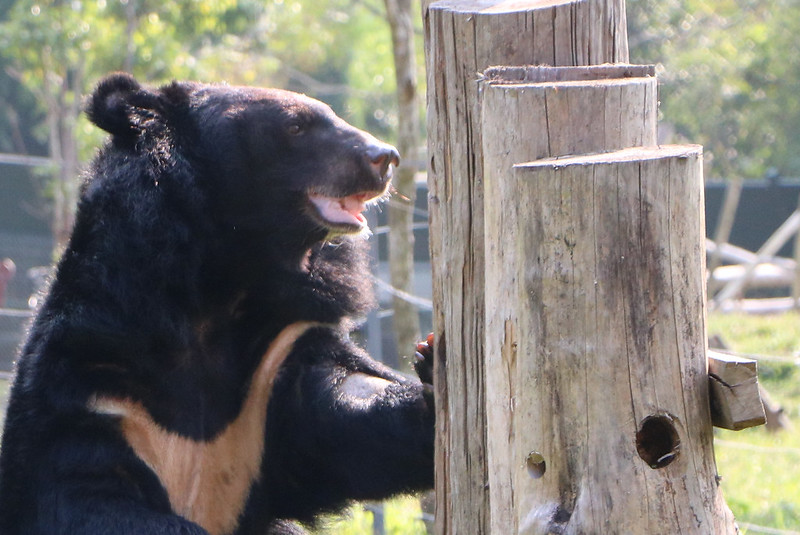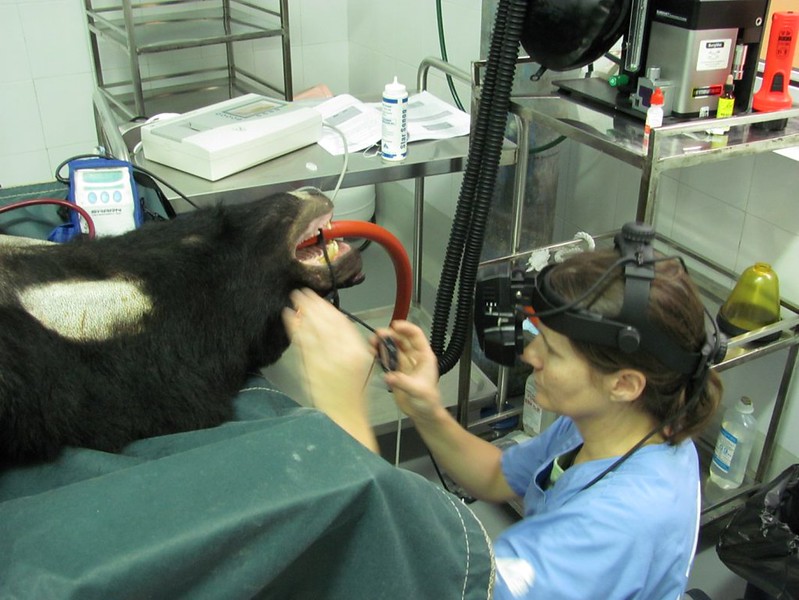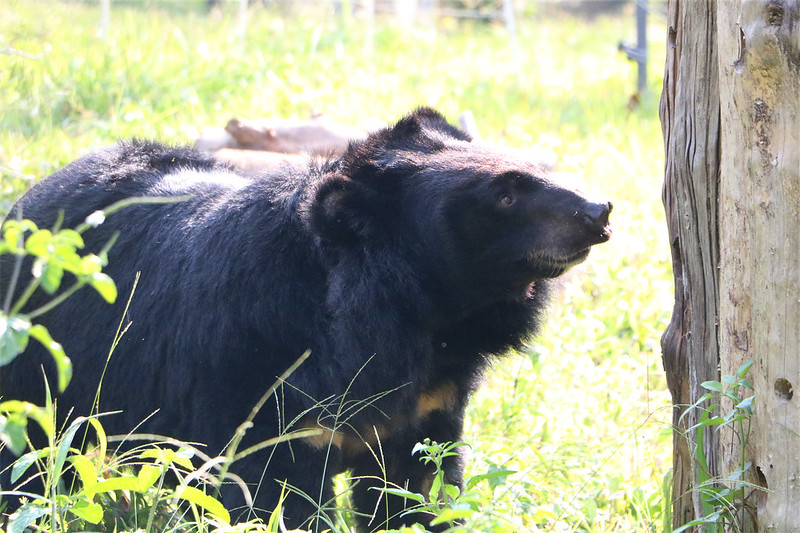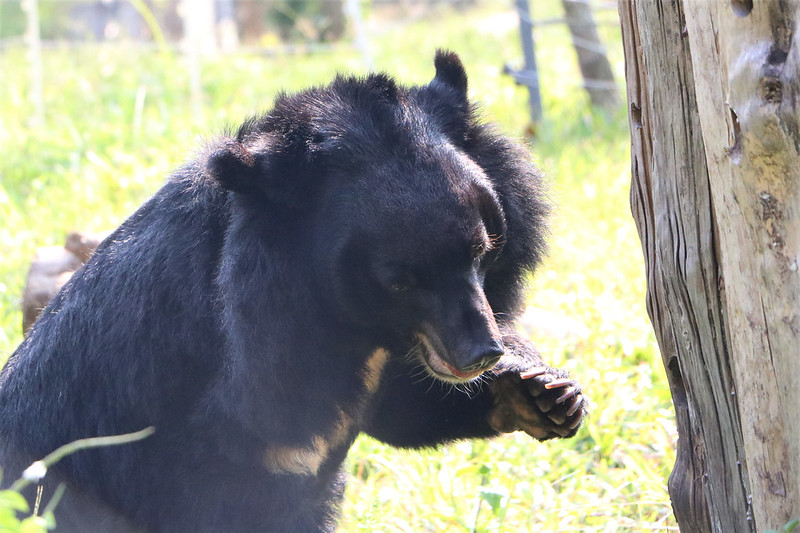This brave bear’s mystery seizures are a worry for his carers, but new medication offers hope
06 November 2017
Seven years after being rescued from a bile farm, moon bear Sampo’s road to recovery is plagued by recurring fits but his carers are determined to maintain his quality of life.
When rescuers met Sampo on a bile farm near Vietnam’s iconic Halong Bay in 2010, he was small and very thin, with a scruffy coat and callouses from being kept inside a cage so that his bile could be extracted for use in traditional medicine.
Like the four other bears who were rescued with him and taken to Animals Asia’s sanctuary in Tam Dao National Park, Sampo suffered from an array of ailments. His body was a map of misery inflicted by this cruel practice.
Health checks on Sampo revealed chronic high blood pressure, scarring on the surface of his liver and gall bladder from the invasive technique used to extract his bile, haemorrhaging at the back of his eyes and stiffness in his joints.
Animals Asia’s vets quickly set to work treating Sampo’s health problems and within a few months he was well enough to be reunited with Fritz - one of the bears rescued alongside him. Their joy at being together without any bars to separate them was palpable as they playfully wrestled with each other for hours and hours, not even stopping to enjoy their snacks.
Although treating Sampo’s hypertension continued to be a challenge, his health was not cause for major concern until 2012, when he had his first known seizure.
Sampo appeared to come out of it quickly but in 2015, he had another fit - this time frothing at the mouth and trembling. He suffered more seizures in the last two years which left him noticeably quieter than usual and more tired.
Sampo’s latest health check in October this year found no obvious reason for his seizures but vets are working to a presumptive diagnosis of epilepsy or a brain tumor.
Both health issues can only be diagnosed by excluding all other feasible causes and vets are working to rule out other potential problems
While epilepsy and brain tumors cannot be cured, they can be managed with medication to maintain quality of life and suppress the troubling seizures.
Thankfully, new medication is now on the way to Animals Asia’s Vietnam Bear Rescue Centre offering new hope for Sampo.
Until they arrive, Sampo is being closely monitored to make sure his quality of life is the best that it can be. Like other bears, he is eating, drinking and foraging in his grassy enclosure, and takes naps in his baskets on hot days.
Animals Asia’s Senior Veterinarian Mandala Hunter-Ishikawa said:
“Seizures are rare in bears we have rescued from the bile industry, and there can be a wide range of causes. We suspect Sampo’s seizures are originating within his brain - as opposed to irregularities in his blood or elsewhere in his body - which suggests epilepsy or a tumor. While we continue to narrow the possible causes, our most immediate concern is that he has a good quality of life while he deals with this disease.
“Routine health checks for the hundreds of bears living in our sanctuaries in Vietnam and China are absolutely crucial. They have all suffered greatly and it is vital that problems are detected early to give the bears the best chance of recovery. In the overwhelming majority of cases we know what we’re dealing with immediately, so it’s quite frustrating to have to wait to confirm the cause of Sampo’s fits - but with each possible cause eliminated we get a step closer to a proven diagnosis.”
Animals Asia Bear Manager Lauren Werrey said:
“Sampo’s condition is obviously unpleasant for him, but also for everyone that cares for him. Despite having lots of friends, Sampo is living in his own enclosure for the time being to ensure his well-being and minimise any undue stress.
“Our priority for this brave bear is to monitor his condition closely and make sure he is as pain-free and as comfortable as possible. He has come such a long way and we want him to have the best quality of life possible. He deserves it, all our bears do.”
To date, Animals Asia has rescued more than 600 bears – mostly from the bear bile industry – in Vietnam and China.
Animals Asia and the Hanoi government pledged in July 2017 to completely end bear bile farming in Vietnam and rescue around 1,000 bears still caged in the country.
The move follows an MOU between Animals Asia and the Vietnamese Traditional Medicine Association signed in 2015 to ensure an end to bear bile prescription among traditional medicine practitioners by 2020.
BACK








